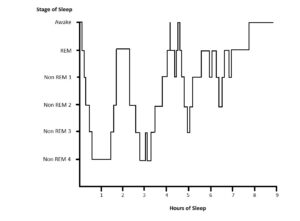Sleep
How Does Sleeplessness Affect Your Memory?
There are few things more important to living a long and healthy life than sleep. In addition to playing a role in your physical and emotional well-being, sleep also affects your memory and mental health. Countless hours of study and research have been dedicated to learning how and why sleep and memory are so interconnected.
No matter who you ask, however, there’s a direct correlation between sleeplessness and a bad memory. Although your body is at rest during sleep, your mind is working overtime to process everything that happens during the day. Additionally, your brain also uses sleep as a time to reinforce old memories and make them stronger and sharper.

Why You Should Sleep On It
It’s likely that at some point in your life, you’ve heard someone use the phrase, “I need to sleep on it.” While you might have assumed that it’s just something people say, sleeping on it is a great idea before making a big decision or learning something new.
As you’re sleeping, your brain is doing a number of things.
- Processing information
- Strengthening old memories
- Connecting old memories to new ones
- Coming up with ways to solve problems
Therefore, when you take the night to sleep on it before making a big decision, your brain will use new and old memories to help you make the right choice. Additionally, a good night’s sleep will also help you retain things you learned earlier in the day and connect that new information to something you may have learned days or years prior.
Can Sleep Help You Form New Memories?
In addition to strengthening old memories and information, sleep is also important for creating new ones in the future. This is why it’s important for students to get adequate sleep when they’re in college.
According to Dr. Matthew Walker at the University of California, Berkeley, sleep is essential to memory-based learning. As your sleep, your brain is preparing neural pathways to retain future information. During this time, your brain is also preparing itself to receive new information and store it for future use.
Then, a good night’s sleep after learning new information will help to cement it in your brain as a long-term memory. Therefore, sleep is essential for learning and processing new information, as well as retaining it for future use.
Why are Sleep and Memory so Interconnected?
To fully understand how and why sleep and memory are connected, it’s important to understand the three stages of sleep and the three types of memories.
 Light Sleep
Light Sleep
During light non-REM sleep, your brain starts preparing itself to receive new information the following day. Light non-REM sleep is a time when your brain somewhat decompresses and prepares itself for future use. During this time, however, your brain also goes over everything it learned during the previous day and cycles through the information.
Deep Sleep
Deep non-REM sleep is the second stage of sleep. This stage is very similar to light non-REM sleep in that it’s a time when your brain prepares neural pathways and cycles through fresh information. However, because deep non-REM is a slightly deeper sleep stage, memory preparation, and retention is more intense. It’s during light and deep non-REM sleep that your brain works on two memory types – acquisition and consolidation.
Acquisition is the type of memory where you learn new information, whereas consolidation is where the memories get solidified in your mind.
Rapid Eye Movement (REM) Sleep
The third, final, and most important stage of sleep is the REM stage. REM sleep is where memories and information get locked in and solidified in your brain. This stage is also when your brain processes emotional information and memories, which is crucial for working through dark points in your life. The REM sleep cycle is also when most of your dreaming occurs.
The Effect of Sleep on the Brain
In addition to your memory, sleeplessness also has a detrimental effect on your brain. When you don’t get enough sleep, it will directly impact your hippocampus, which is the part of your brain dedicated specifically to memories. This effect on your brain cuts your ability to learn new things and process thoughts nearly in half.
Finally, not getting enough sleep will also make you feel drained, unenergetic, and drowsy. Each of these things can lead to mental fog and an inability to process new information. If you struggle to process information and feel like you’re in a mental haze, your memory will suffer drastically.
Like? Share with your friends
Learn More Information on How Somni Can Offer You a Better Sleep Experience*

